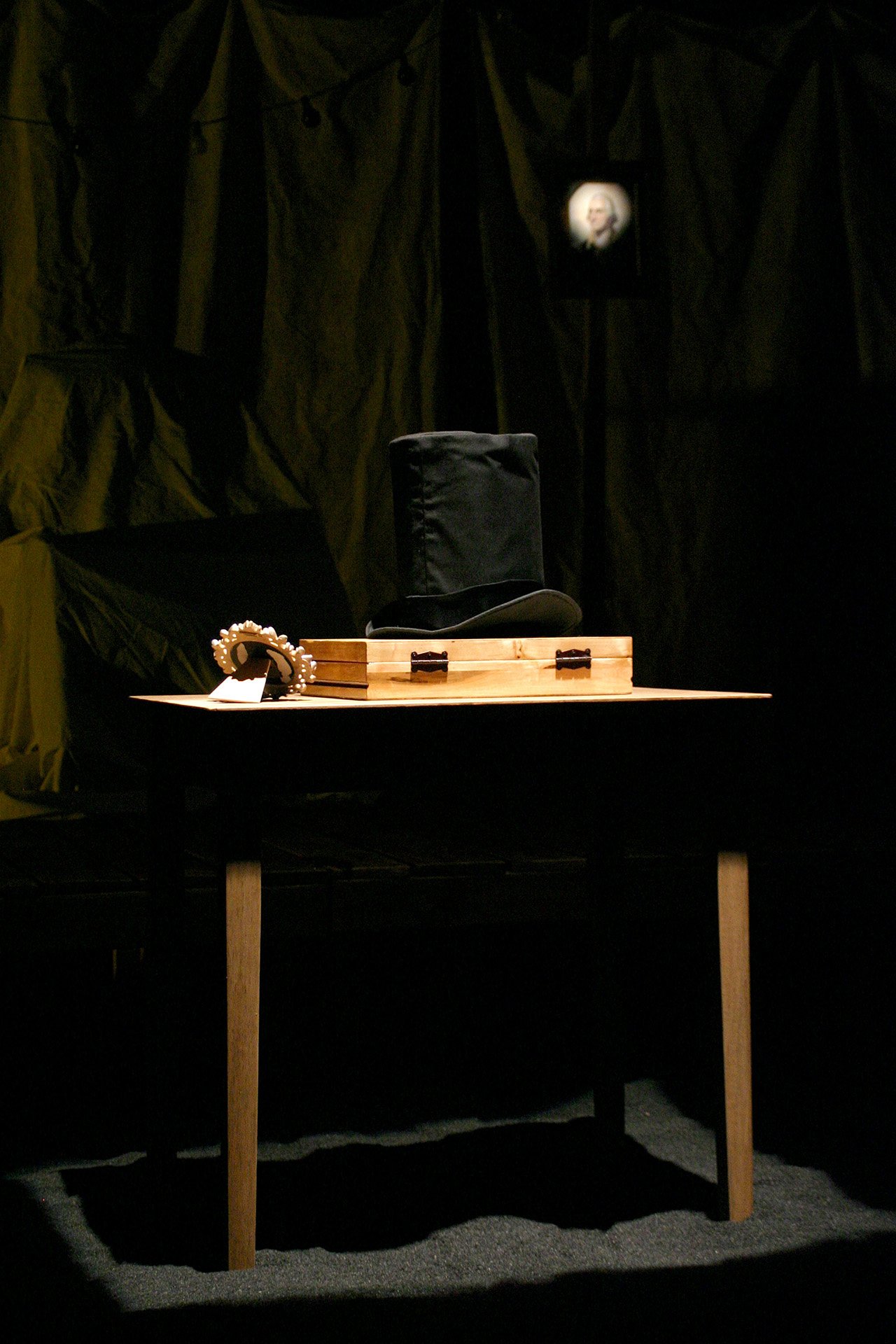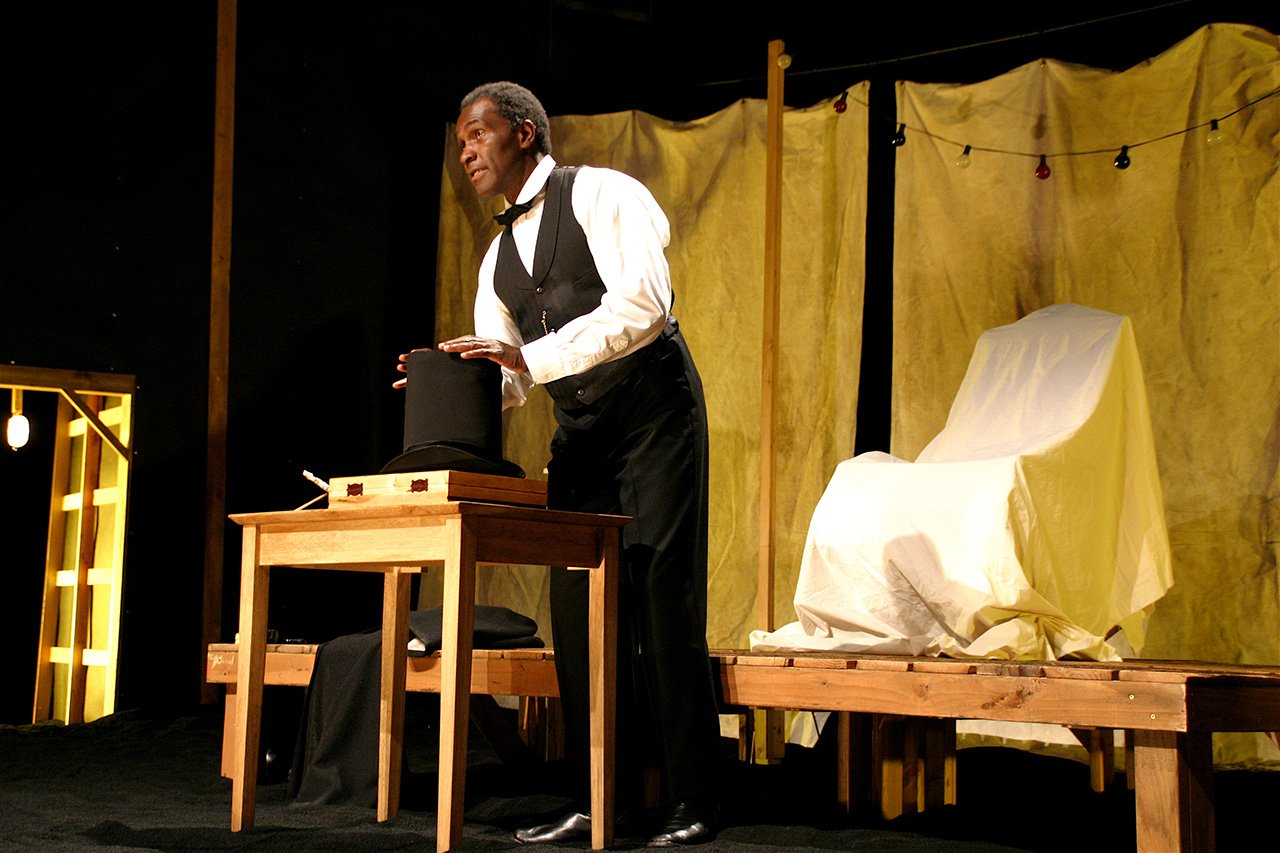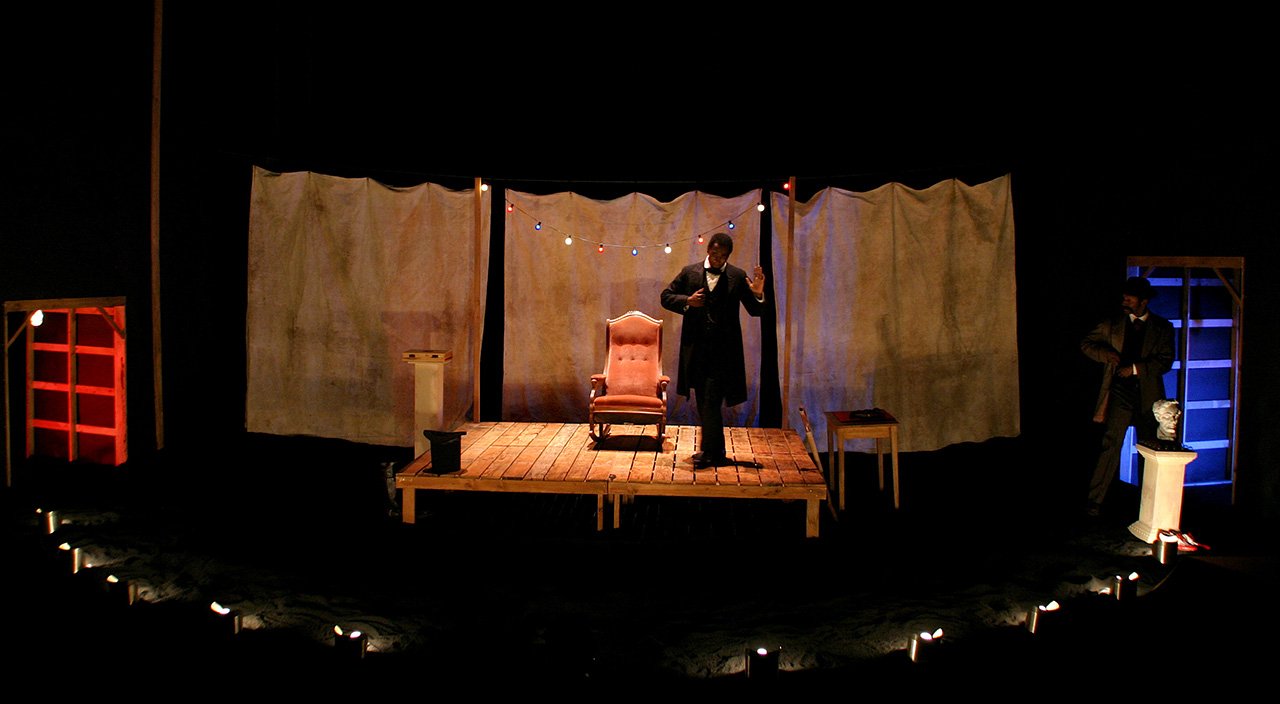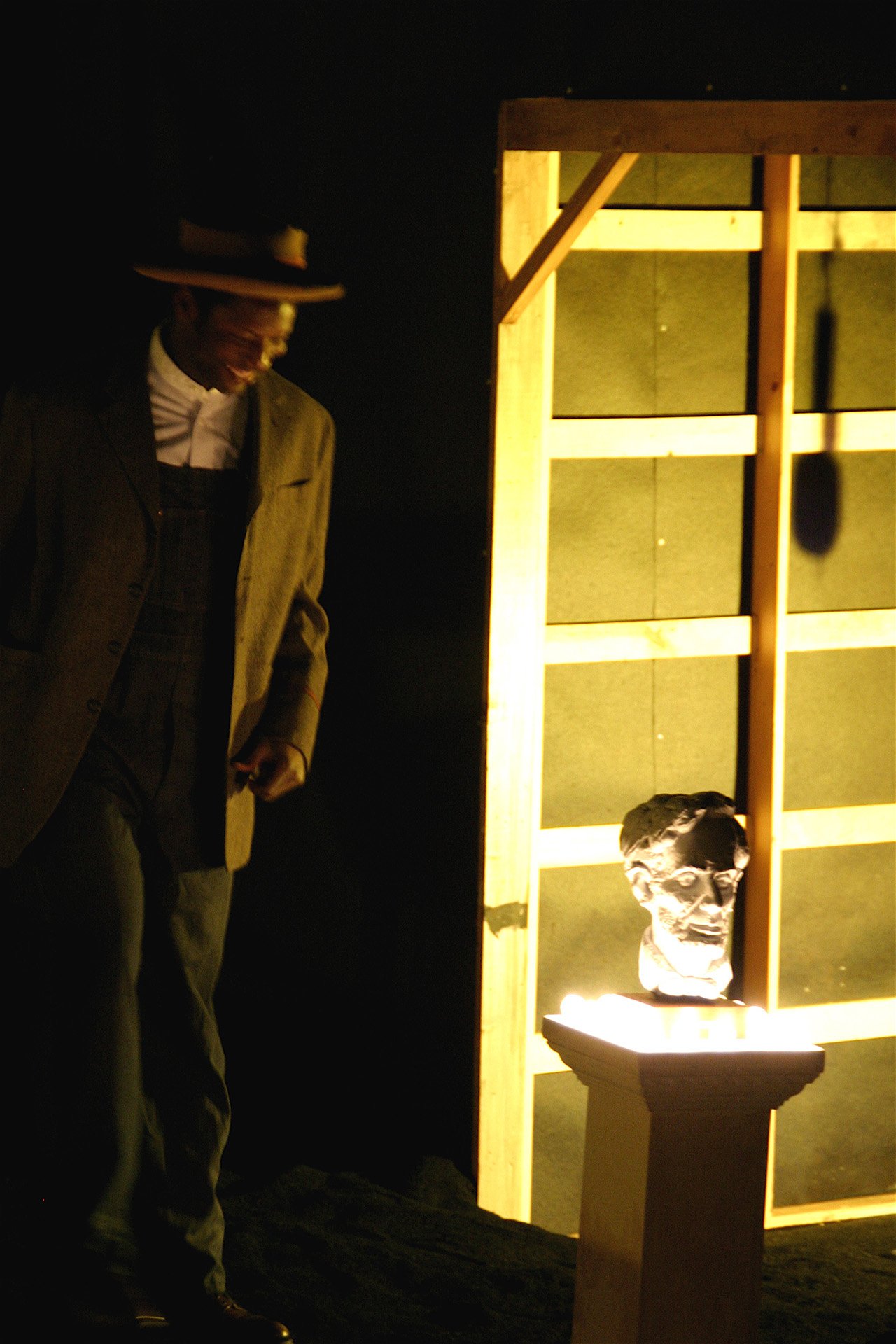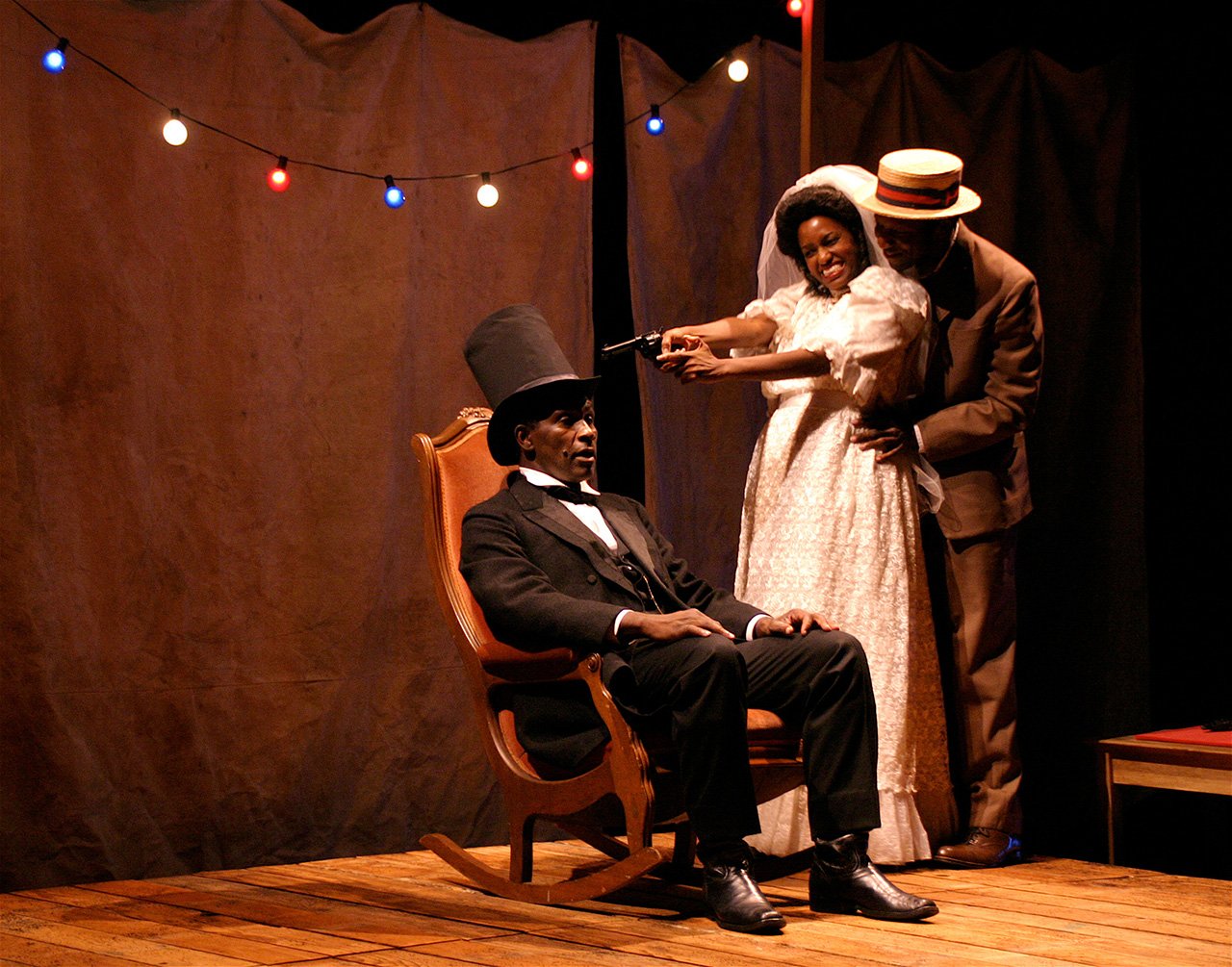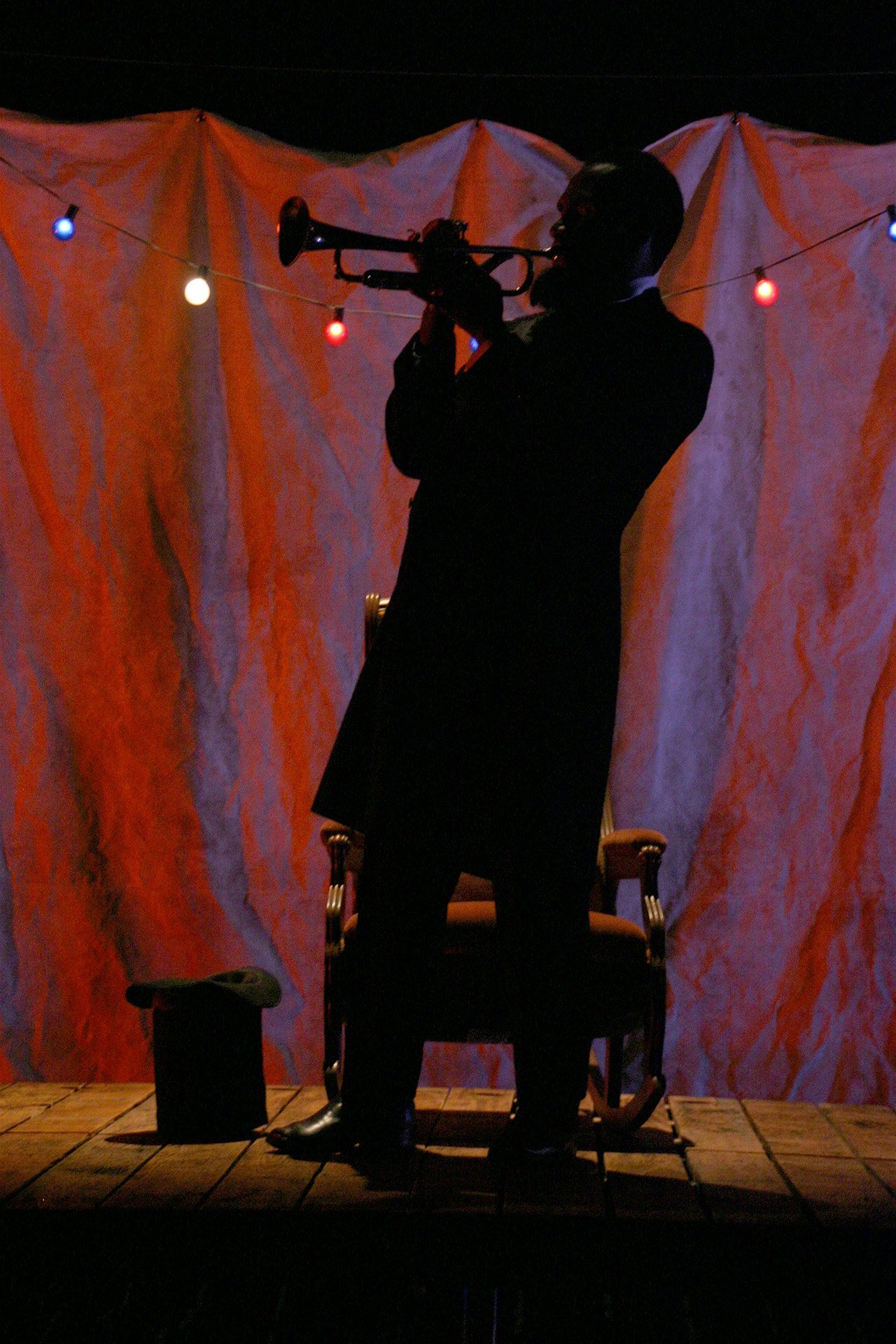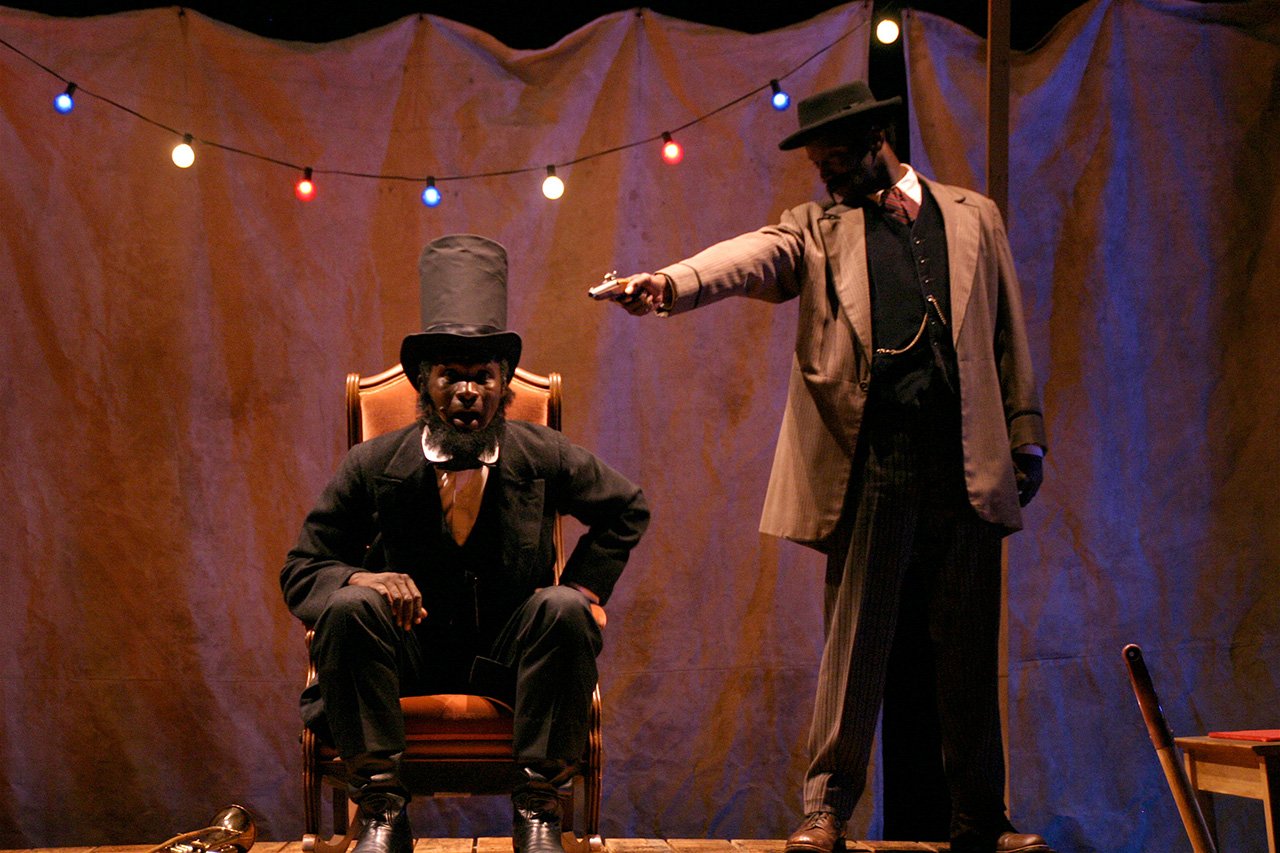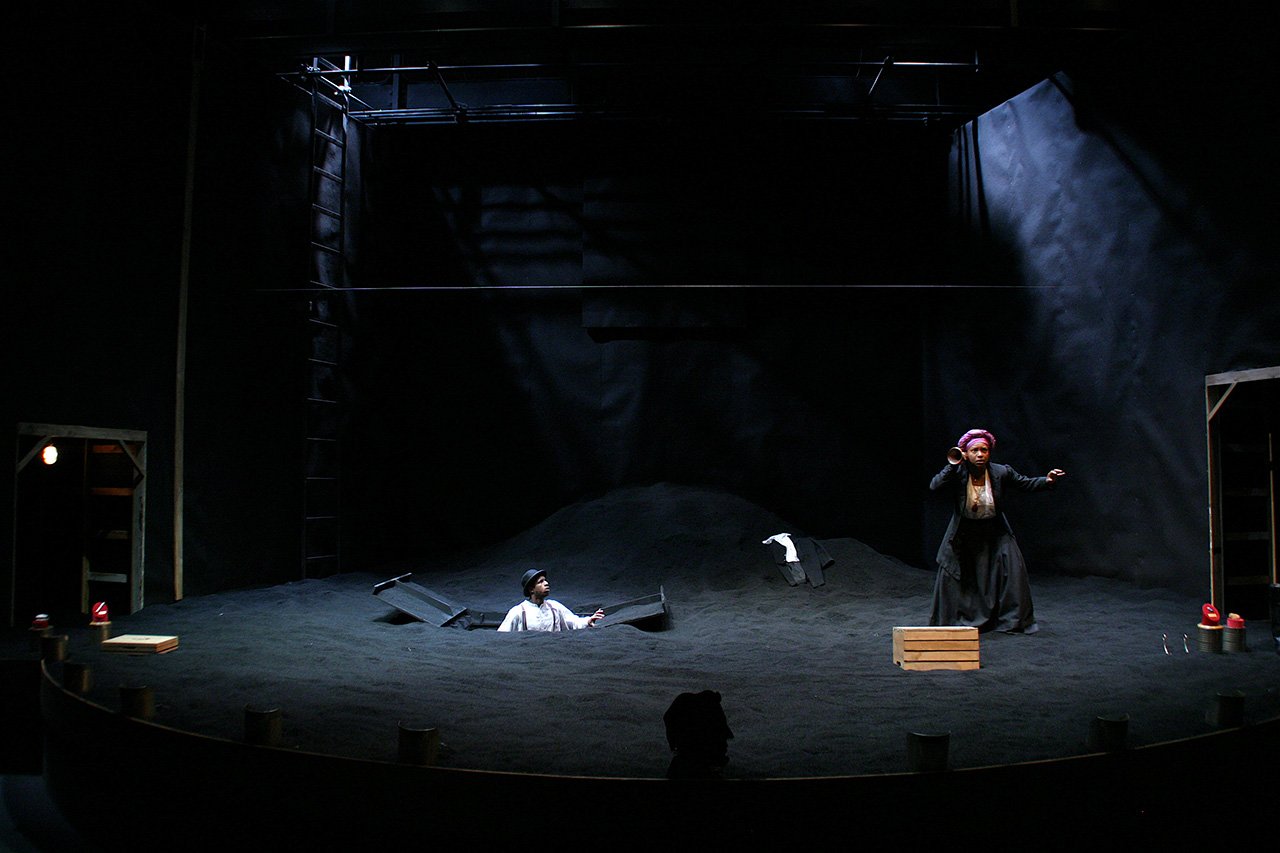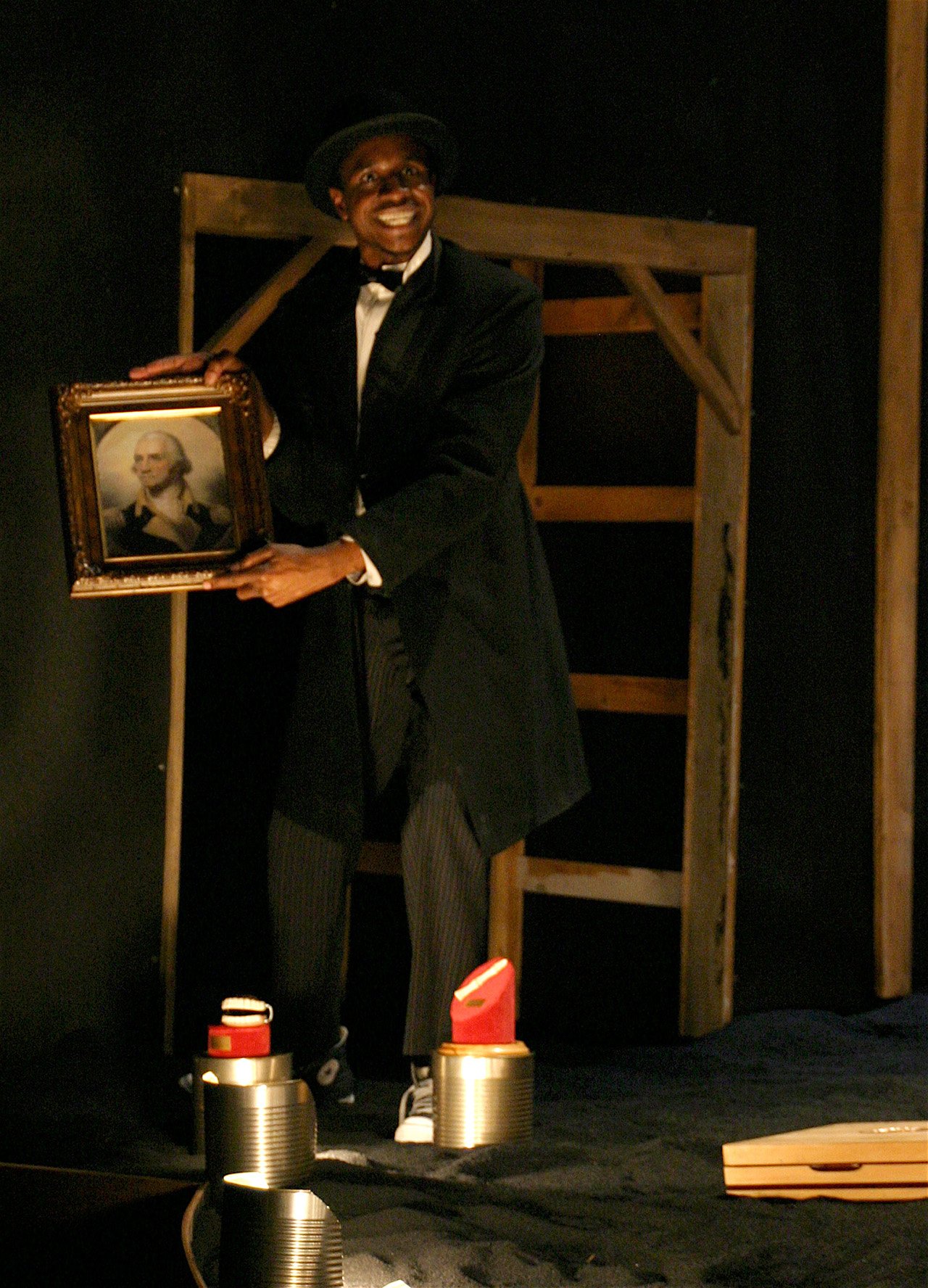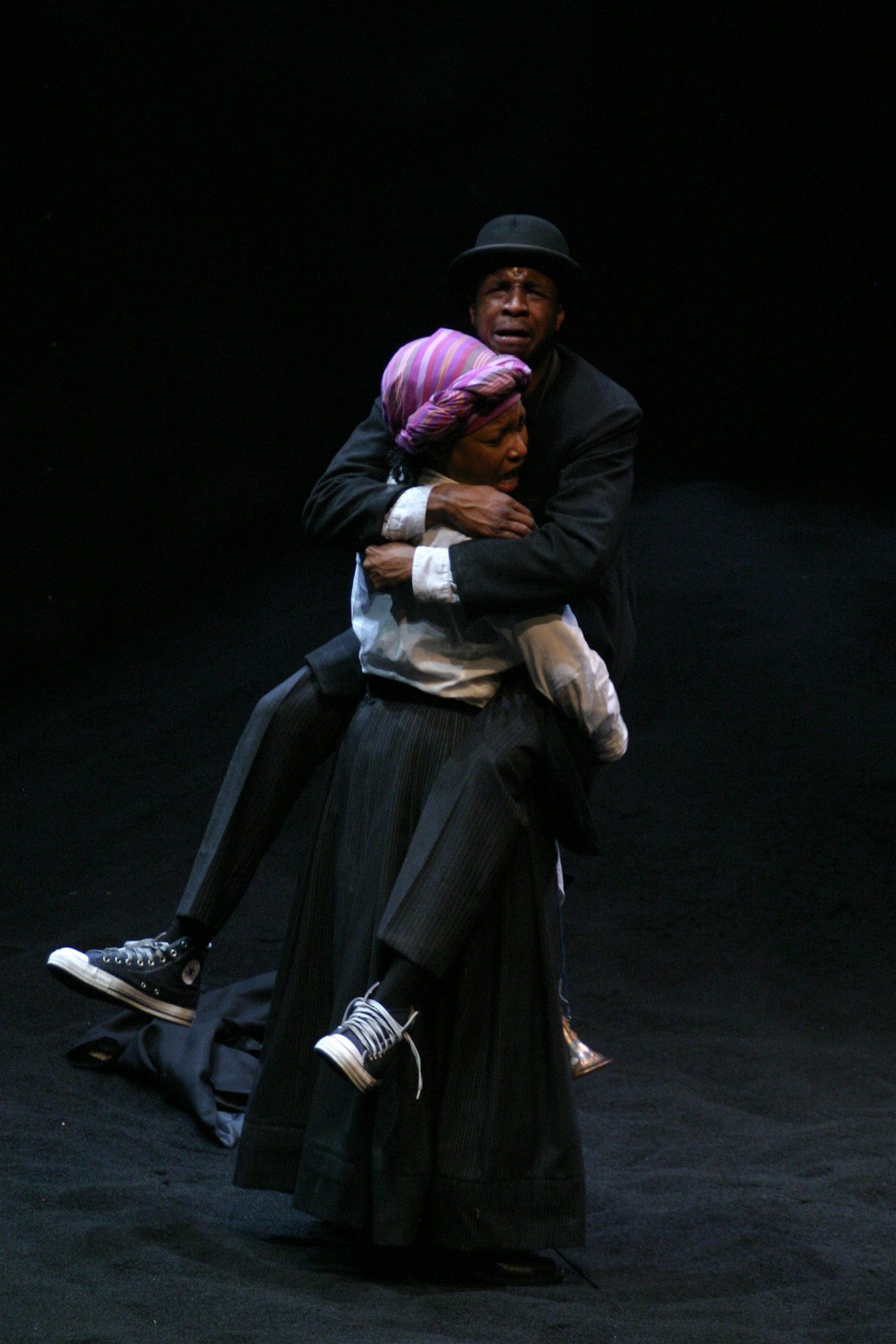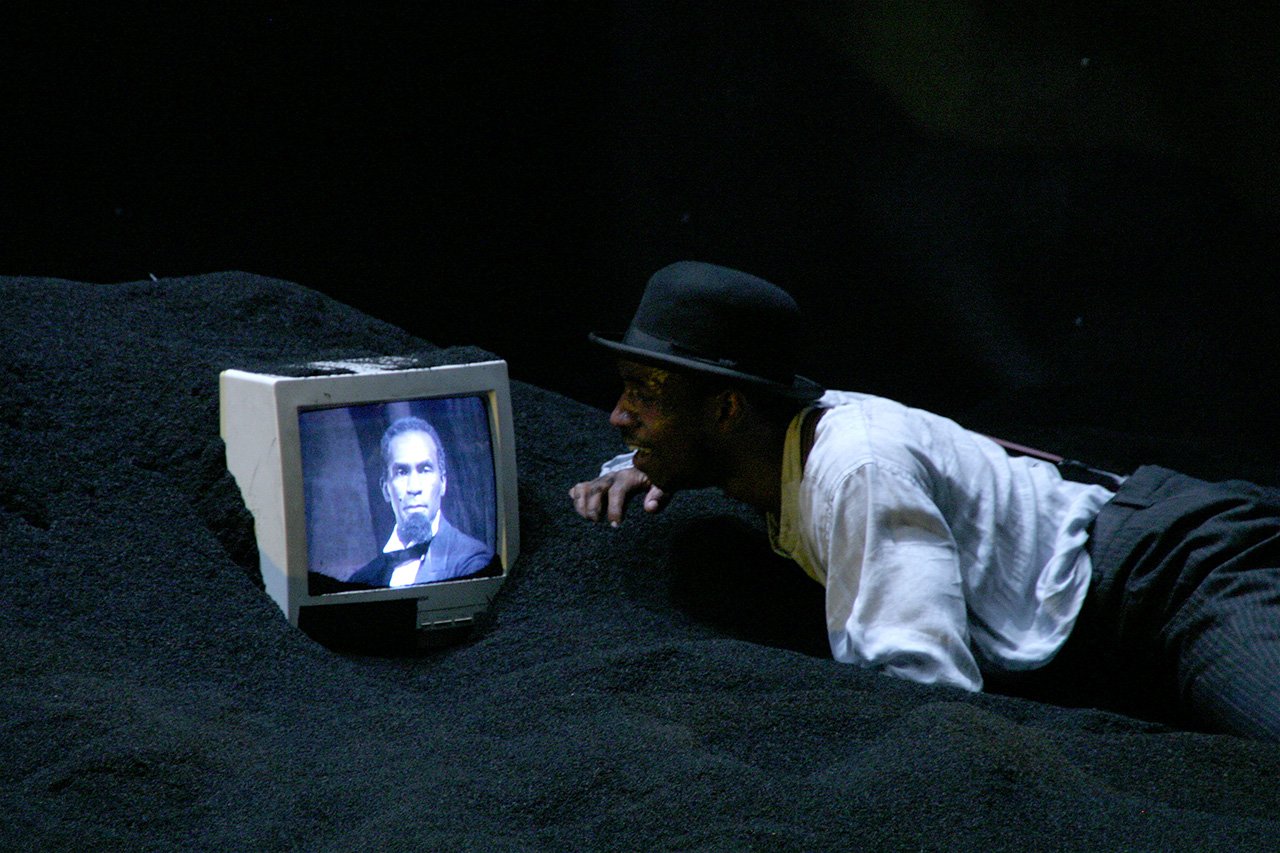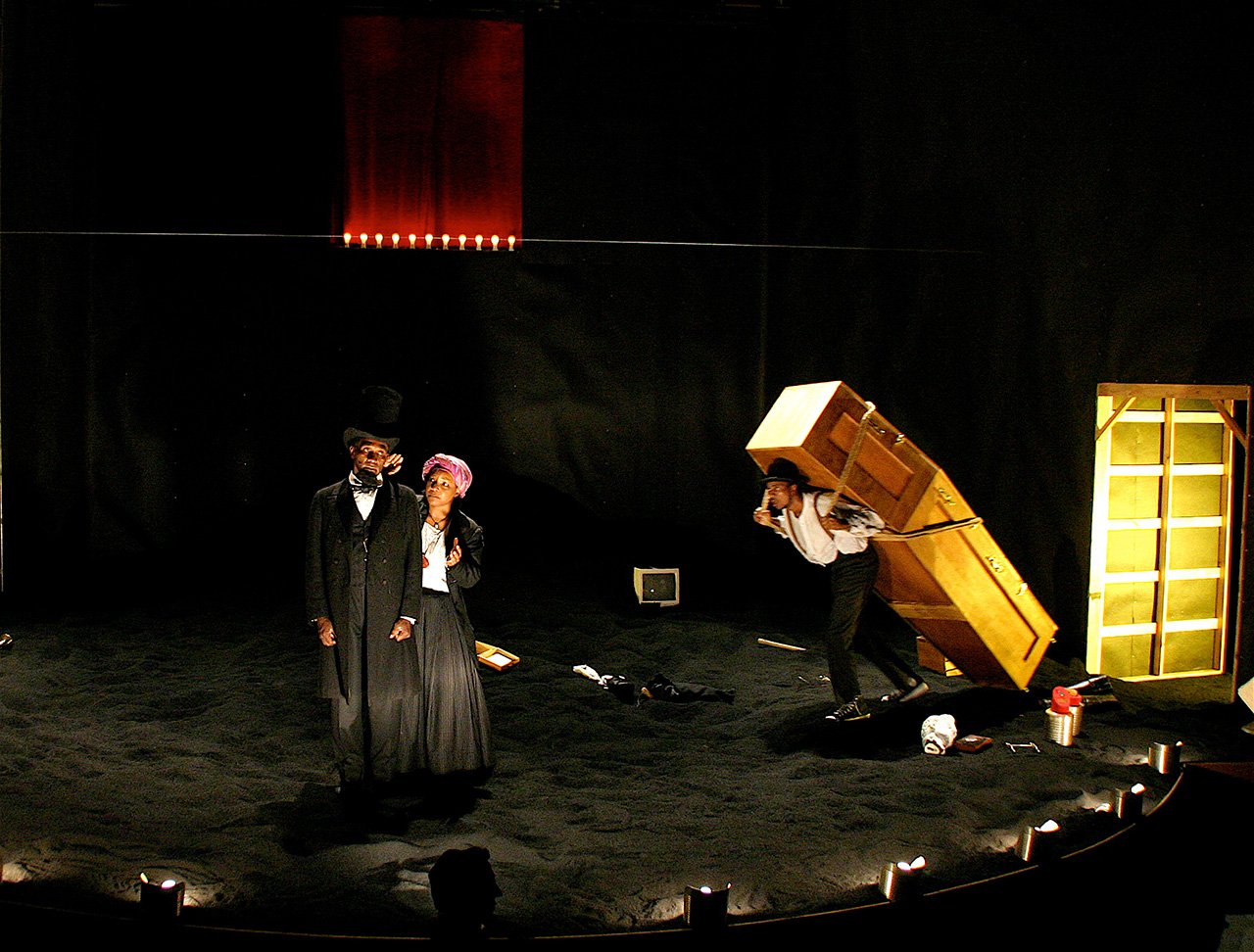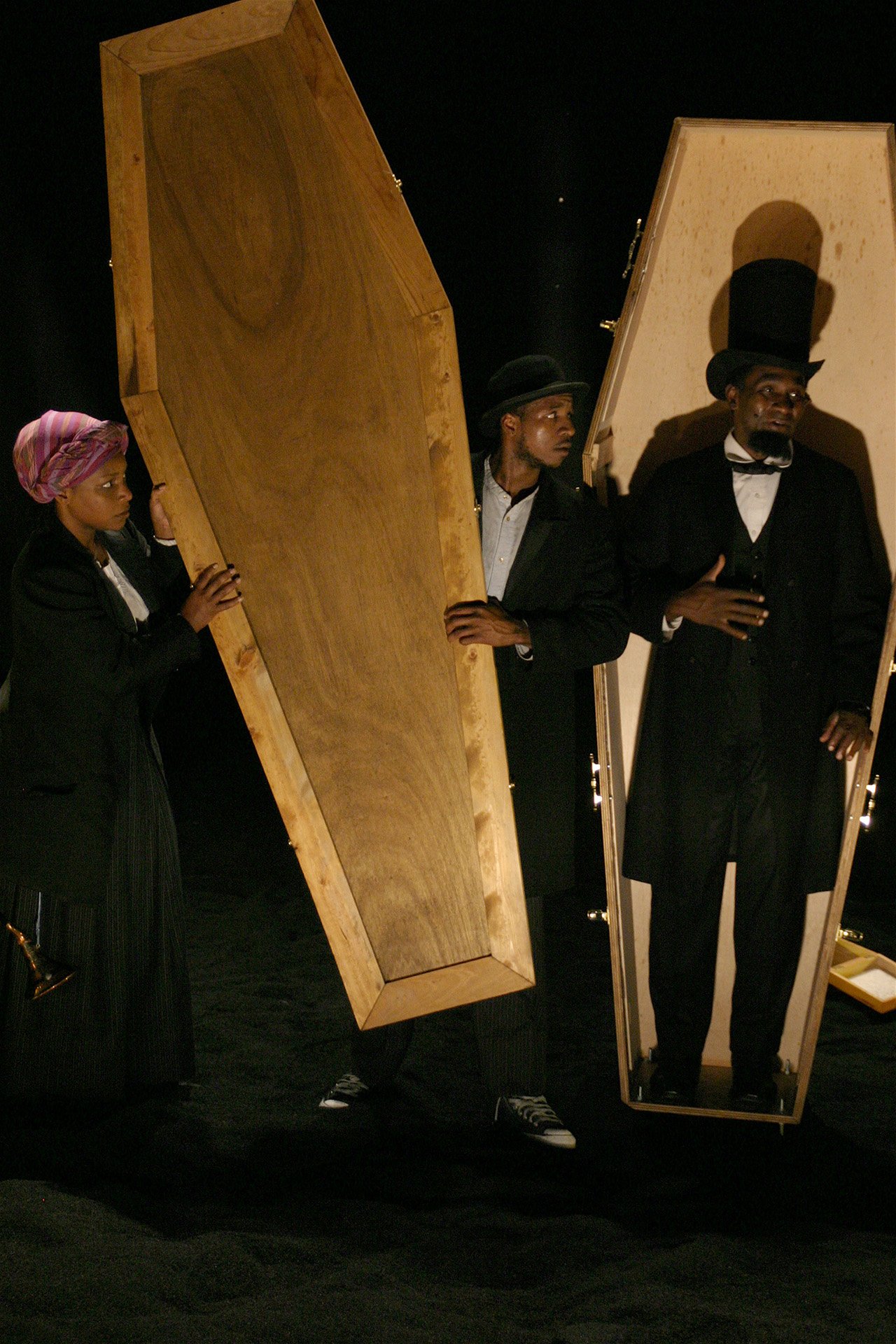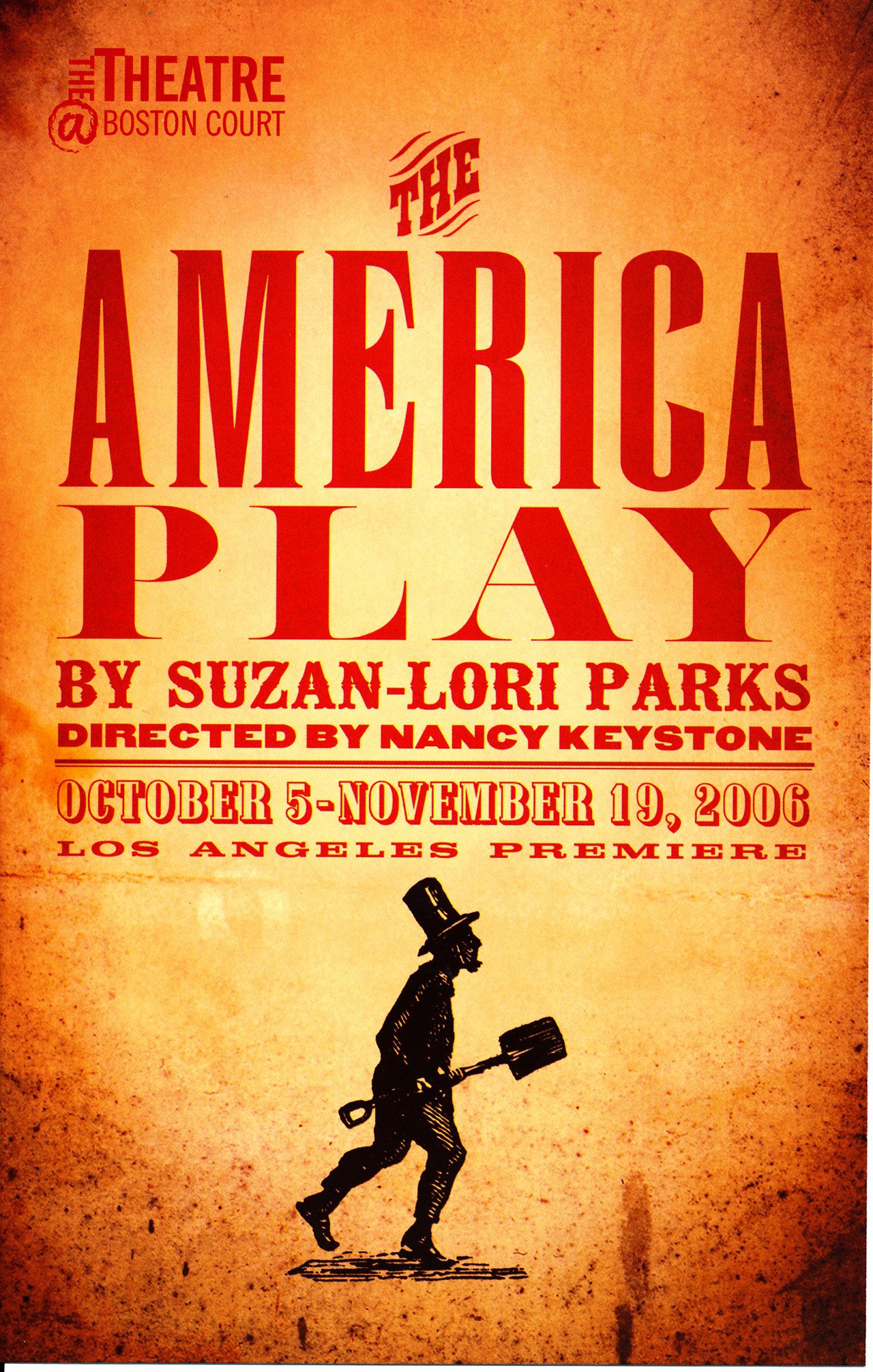Category
other directing work, selectedby Suzan-Lori Parks
The Theatre @ Boston Court,
Pasadena, CA 2006
The Foundling Father,
as Abraham Lincoln – Harold Surratt
Visitor 1 – Lorne Green
Visitor 2 – Alexa Alexander
Lucy – J. Nicole Brooks
Brazil – Darius Truly
sets by Nancy Keystone
costumes by Jeannique Prospere
lighting by Justin Townsend
original music-sound by Randy Tico
stage manager by John Freeland Jr
Reviews
Los Angeles Times “Critic’s Pick”
“Gorgeously staged by director-designer Nancy Keystone…”
—Charlotte Stoudt, LA TimesBackstage West “Critic’s Pick”
“Keystone and her ferociously committed cast join Parks’ disturbing but lyrical visualization to boldly sabotage our contentment with the myths that have been fed to us, symbols meant to legitimize our past and our present whether accurate or not. It is a jarring, often humorous vision…”
—Travis Michael HolderBackstage West October 26, 2006
“…designer-director Nancy Keystone’s L.A. premiere production brings this phantasmagoric pageant to life with all its dense wordplay and overlapping images… Keystone proves to be a helmer to watch… By refusing to allow thematic resonance to take precedence over the human drama, she avoids the directorial self-indulgence that so often renders nonrealistic plays unwatchable.”
—Robert Verini, VarietyLos Angeles Times
“Critics’ Pick”
Theater Review
“The America Play”
American dream as a missing prize at Boston Court.
By Charlotte Stoudt,
Special to The Times
Once upon a time there was a gravedigger (Harold Surratt) who looked so much like President Lincoln he decided to make a killing off it. He set himself up as a fairground attraction impersonating the great man watching “Our American Cousin” at Ford’s Theatre. For a penny, anyone could come to his booth to be Booth: Choose a pistol, take aim, assassinate. Never mind that the man was black, or that he abandoned his wife Lucy (J. Nicole Brooks, riveting) and young son Brazil (Darius Truly) in pursuit of his dream. He was obsessed.
Gorgeously staged by director-designer Nancy Keystone, who turns the Theatre @ Boston Court into a giant absurdist sandbox, Suzan-Lori Parks’ “The America Play” presents three souls tumbling their way across an expanse of black dirt (actually ground-up rubber tires) described as “an exact replica of the Great Hole of History.” Following the trail of the missing gravedigger, mother and son dig up all manner of clues but never seem to find the story they want.
“The America Play” isn’t a narrative but a set of compulsively repeated gestures, minstrelsy outtakes and twisted nursery rhymes. Like Samuel Beckett’s beggars — really, like the audience — Parks’ foundering family tries again and again to piece it all together. But Parks suggests the American Dream, particularly for those brought here against their will, is a scavenger hunt with a missing prize, an echo chamber without end. Her vision is a stubborn wondering with strange staying power.
Back Stage West
Backstage West “Critic’s Pick”
The America Play
October 26, 2006
By Travis Michael Holder
An African American sideshow performer spends his days seated behind a curtain at an arcade, waiting patiently until someone puts a penny into a slot in the top of a bust of Abraham Lincoln. The performer dons a stovetop hat and fake beard to take on the persona of our 16th president, as customers line up to shoot him while he laughs through Our American Cousin in perpetua. It’s an unforgiving image, focused on re-creating Lincoln’s final utterances and those of John Wilkes Booth accurately, as though this repetitious depiction of the event will somehow define the men themselves, as though we as a people must explain history to assure ourselves we deserve a future. “I’m trying to follow in the Great Man’s footsteps,” says the Foundling Father (Harold Surratt). “But his footsteps were always behind him.”
It’s a starkly surreal history told by playwright Suzan-Lori Parks, who questions whether that history applies to her and her people, something intensified by the huge blank stage, designed by director Nancy Keystone, covered in pulverized tire rubber where various early American relics are buried, waiting to be unearthed. By Act 2, this faux Lincoln is dead, but Keystone’s “great hole in the middle of nowhere” is now inhabited by his widow and son (J. Nicole Brooks and Darius Truly, respectively), who endlessly dig to find out why he spent his life re-enacting the assassination. But in doing so, they keep coming up with historical artifacts dating to long before the sideshow interpretation, giving Parks the opportunity to poetically take on our country’s dubious political legacy.
Keystone and her ferociously committed cast join Parks’ disturbing but lyrical visualization to boldly sabotage our contentment with the myths that have been fed to us, symbols meant to legitimize our past and our present whether accurate or not. It is a jarring, often humorous vision, made more disturbing by the use of Ebonics to speak a brazen new eloquence. On opening night there were glitches in performances, but the electrifying Truly, playing somewhere between Stepin Fetchit and Sammy Davis Jr., epitomizes the whole point here: For the still often displaced and disenfranchised African Americans, there’s no real recorded history that has not, if you’ll excuse the expression, been whitewashed into oblivion.
Presented by and at the Theatre @ Boston Court, 70 N. Mentor, Pasadena. Thu.-Sat. 8 p.m., Sun. 3 p.m. Oct. 14-Nov. 19. (626) 683-6883.
Variety
The America Play
By ROBERT VERINI
Sitting through Suzan-Lori Parks’ “The America Play” is not unlike a visit to the theme park serving as her central image. The “Great Hole of History” is where onlookers peer down and confront the national mythology as the mighty and famous of yesteryear parade below, and it’s a remote experience to some, a stimulating and involving one to others. Despite one critical miscasting, designer-director Nancy Keystone’s L.A. premiere production brings this phantasmagoric pageant to life with all its dense wordplay and overlapping images, and reflects the ever-adventurous tastes of Pasadena’s Theater @ Boston Court.
Parks’ consuming interest in the archaeology of the American character is amply exercised in this story of an African-American gravedigger (Harold Surratt) whose startling resemblance to Abraham Lincoln prompts him to earn a living impersonating the great man while patrons reenact his assassination. Parks, of course, later applied the same conceit to her Pulitzer-winning “Topdog/Underdog,” a warmer and more accessible but much thinner work.
Narrating act one in the third person – because it’s “his-story” – the digger proudly shares the secrets of his eerie profession, but while his eyes remain bright, his spirit breaks with each successive mock murder. This “Foundling Father,” as he’s known, deserted wife and son to follow in the footsteps of greatness, only to find those footsteps were always behind him. He has been deafened by the echoes of the past in his head (enhanced in Randy Tico’s skillful sound design).
Surratt is unaffected and compelling in the exhausting role of an archetypal working stiff (pun intended) for whom life’s hard realities put the kibosh on youthful dreams—Parks’ vision of America as well.
In act two, Keystone’s carnival set has been struck to stunningly transform the stage into a black hole, complete with thick mounds of dirt from proscenium to back wall. Wife Lucy (J. Nicole Brooks) has arrived at a chasm dug, “so say hearsay,” by her long-lost husband in imitation of the theme park at which they honeymooned. Determined to locate his literal and figurative remains, she sets son Brazil (Darius Truly) digging for “wonders” as she prowls with an ear trumpet tuned to the hoped-for whispers of her man’s essence.
Author assigns Lucy mighty labors to restore her house divided, but Brooks is ill suited to them. That she is at least 20 years too young for the role is less significant than her lack of aesthetic weight. Blithe, even giddy where she should be grimly purposeful, she plays at, rather than inhabits, a wife with the single-minded quest of redeeming her husband’s legacy. The couple’s lack of connection creates a major hole in dramatic interest.
Setting aside the second-act slackness, Keystone proves to be a helmer to watch, as she mixes scenes without demanding the audience dwell on them. By refusing to allow thematic resonance to take precedence over the human drama, she avoids the directorial self-indulgence that so often renders nonrealistic plays unwatchable.
Truly is fine as the conflicted son who both echoes and spurns his father, and Alexa Alexander and Lorne Green sparkle in a variety of smaller roles.
Brooks actually begins to catch fire in her 11th-hour incantations to call forth the digger’s spirit, and the final tableau of the Father rigid in his upright coffin with coins on his eyes—Lincoln pennies, naturally—is a chilling metaphor for the inescapable role that the dead past continues to play in our personal and national consciousness.
Sets, Keystone; costumes, Jeannique Prospere; lighting, Justin Townsend; original music-sound, Randy Tico; production stage manager, John Freeland Jr. Opened Oct. 14, 2006. Reviewed Oct. 19. Runs through Nov. 19. Running time: 1 HOUR, 50 MIN.



